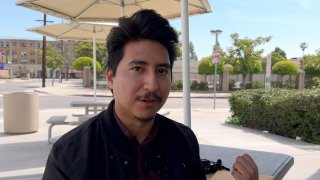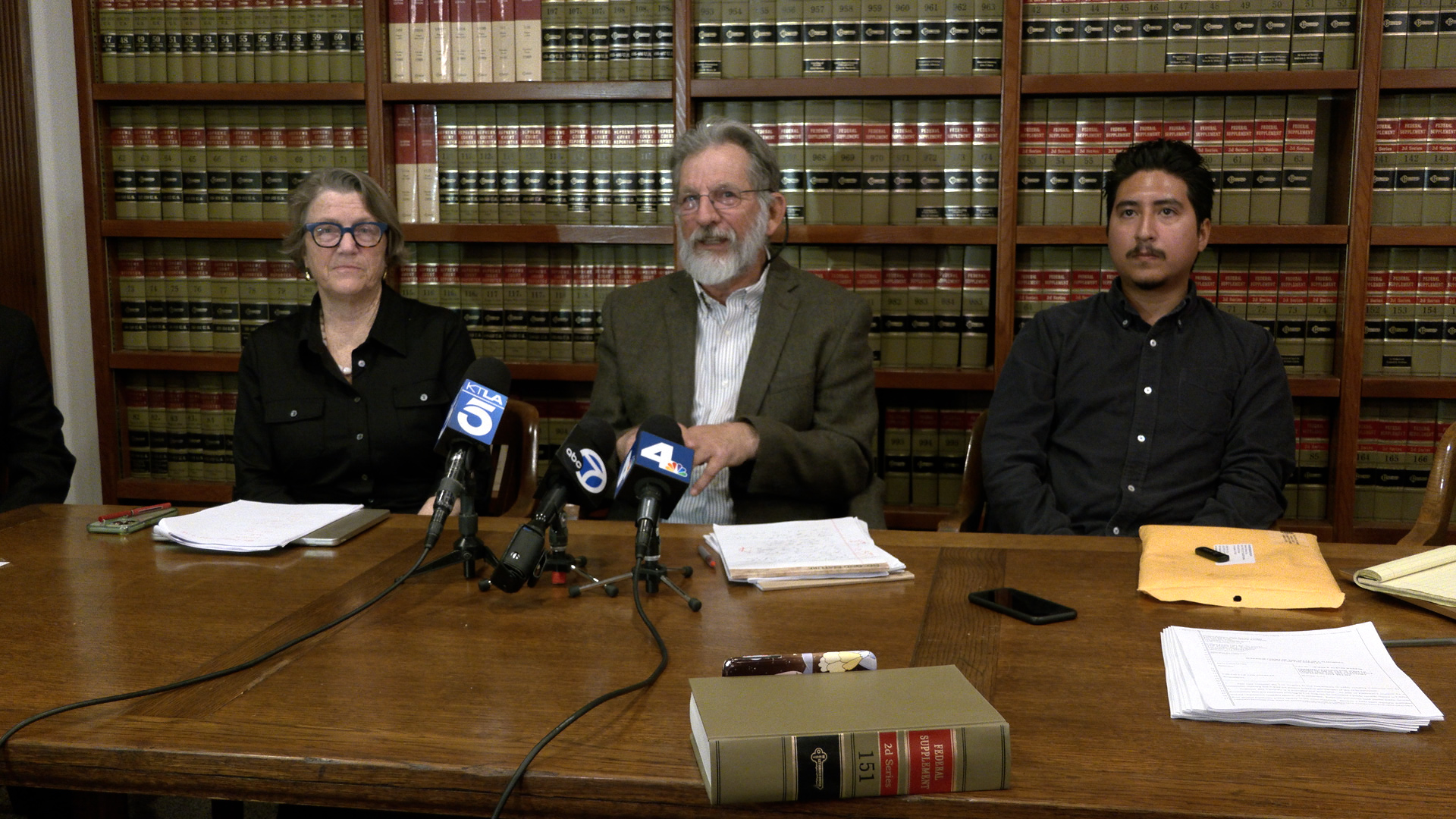
UPDATE Tuesday, April 25, 2023 3:00 p.m.
LA Superior Court Judge Mitchell L. Beckloff Tuesday morning denied the City's request for a restraining order, saying, "there is no exigency and counsel has delayed in bringing this application." The next hearing is set for May 24, when the City will argue that the reporter and coalition should be forced to return the files and destroy any copies.
The City of Los Angeles plans to ask a judge Tuesday for a restraining order to try to stop or slow the online distribution of photographs of thousands of LAPD officers that the City released, saying the accidental disclosure of some pictures has placed the lives of undercover officers in danger.
Get Southern California news, weather forecasts and entertainment stories to your inbox. Sign up for NBC LA newsletters.
"Our public servants are under attack," begins the request filed Monday by the LA City Attorney's Office -- that asks a judge to order a reporter and a group of police critics to stop sharing the pictures until the City's lawsuit demanding the return of the images can be heard.
The City produced the photos and employment information about the officers last year, after Knock-LA.com reporter Ben Camacho successfully sued for access under the California Public Records Act.
After the images were released the "Stop LAPD Spying Coalition" obtained and published them on a searchable website, called, "WatchtheWatchers.net," designed as a tool for the public to search for photos of officers by name.
Earlier this month the City of LA began to demand the 'return' of the files and sued Camacho and the Coalition because the photos and data included the names and photos of some undercover operatives.
"This is a matter of grave concern for individual officers, for the Police Department, for our City, and for the people and communities that our police officers protect and serve," wrote Deputy City Attorney Felix Lebron, who also said Camacho and the Coalition have, "no right to possess," the data in question.
LAPD UNDERCOVER PHOTOS RELEASED
In a declaration filed in court Tuesday the City said the files it provided to Camacho in 2022 contained information that should have been withheld.
"My understanding was that the images of the undercover officers were excluded," wrote Deputy City Attorney Hasmik Badalian Collins.
"I have since learned that the flash drive contained images of undercover officers," he said.
The City Attorney's Office did not immediately respond to a request for comment on the request for a restraining order. Last week a spokesperson for City Attorney Hydee Feldstein Soto declined to comment on the photo release litigation.
Attorneys for Camacho and the Coalition have said the City's legal efforts are meritless, as the publication of the photos and information, even if the City's disclosure was in error, are protected under the U.S. Constitution.
"You cannot punish the press for publishing things that they lawfully obtained," UCI Law Professor Susan E. Seager told reporters at a news conference last week. She is one of several first amendment attorneys now representing Camacho.
On April 4 a private attorney who said he represented more than 300 officers announced he'd filed a government claim against the City of LA for the accidental photo release.
"This presents a significant threat to the citizens of Los Angeles," attorney Matthew McNicholas said, adding that he'd received information some officers had already faced threats as a result of the photo release.
The LAPD has not confirmed whether or not it is investigating threats against undercover officers.
In a declaration filed Monday the head of the LAPD's Robbery Homicide Division, Capt. Jonathan Tippet, said the photo release was causing distress amongst the Department staff.
"As a result, officers have now expressed a desire to leave the LAPD in order to protect themselves and their families," Tippet wrote. "I personally know an experienced undercover officer who chose to retire for this reason."
An unnamed officer who said he works undercover in a narcotics unit also filed a declaration, signing it as "John Doe," in which he said someone recorded him on a cellphone at a police station and threatened to 'out' him as a police officer.



